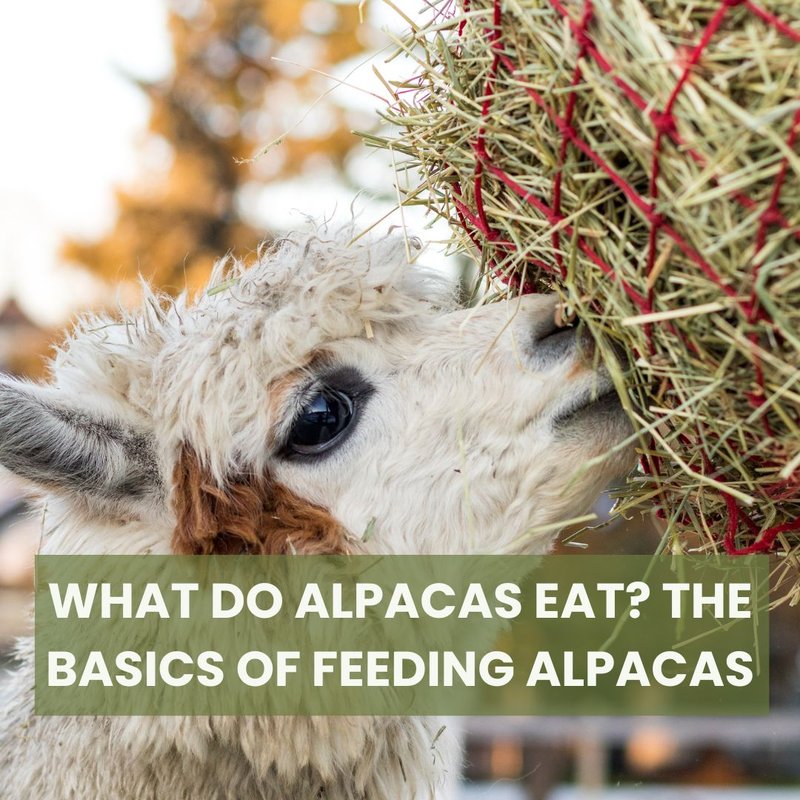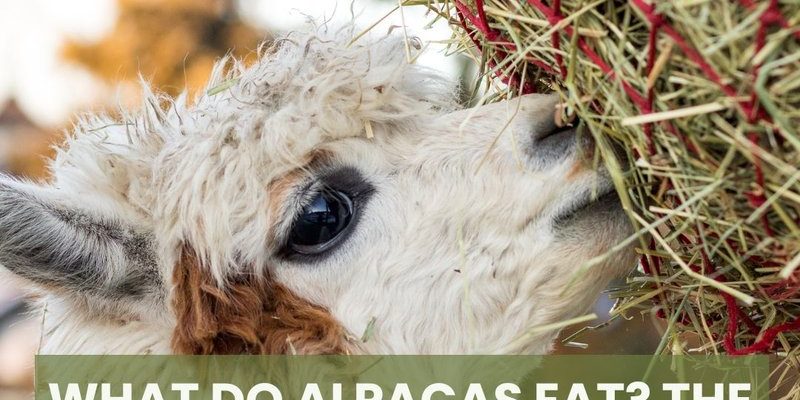
Alpacas are herbivores, which means they primarily eat plants. Their diet consists mainly of grass, hay, and other forage. But it’s not just about filling their bellies; the right food is crucial for their overall health, growth, and even wool production. In this article, we’ll explore what alpacas eat, what their feeding requirements are, and how to create an effective diet plan for them.
Understanding Alpaca Nutrition
Alpacas have unique nutritional needs that differ from other livestock. Their digestive systems are specially designed for a high-fiber diet, which helps them break down tough plant material. You might be wondering how this works. Well, alpacas have a three-chambered stomach, which is quite different from our single-chamber tummy. This special setup allows them to efficiently process and extract nutrients from the grass and hay they consume.
Fiber is king in an alpaca’s diet. It not only aids in digestion but also keeps their gut healthy. If you don’t provide enough fiber, your alpaca might face issues like bloat or constipation. It’s like trying to digest a big meal without enough fiber; it just doesn’t work well. So, let’s dive into what makes up a balanced diet for these charming creatures.
The Core Diet: Grass and Hay
At the core of an alpaca’s diet is high-quality hay or pasture grass. There are several types of hay you can consider, but the most popular choices include timothy, orchard grass, and meadow hay. These hays are rich in fiber and low in protein, making them perfect for maintaining healthy weight and digestion.
When selecting hay, look for vibrant colors and sweet smells. If it looks dusty or moldy, it’s best to steer clear. Fresh grass is also a fantastic option, especially if your alpacas have access to a pasture. Just be cautious with certain types of grass that can be too rich or sugary, like clover or alfalfa, which can lead to health problems if consumed too frequently.
You might wonder how much hay is enough. Generally, an adult alpaca should eat about 1.5% to 2% of its body weight in hay daily. So, if an alpaca weighs around 150 pounds, it should consume about 2.5 to 3 pounds of hay each day. Consistency is key here, just like having your daily dose of vitamins!
Supplemental Feeds: Grains and Pellets
While hay and grass provide the bulk of their diet, alpacas may also benefit from supplemental feeds like grains or pellets. These can be especially useful during times when they need extra energy—like during pregnancy or when raising a cria (that’s baby alpaca, by the way!). Think of these supplements like energy bars for humans. They give a quick boost when needed.
When choosing a grain or pellet mix, opt for one specifically formulated for camelids. It’s important to check that it’s low in sugar and high in fiber. Pellets often come with added vitamins and minerals which can improve overall health, much like taking a multivitamin can help us.
However, it’s essential not to overdo it. Too much grain can lead to obesity or other health issues. A good rule of thumb is to limit supplemental feeds to about 0.5 to 1 pound per day. Monitoring your alpaca’s weight and adjusting their intake based on activity levels is crucial.
Mineral and Vitamin Needs
Just like you and me, alpacas need a good mix of vitamins and minerals in their diet to stay in tip-top shape. Key minerals like calcium, phosphorus, and salt are particularly important. You can provide these nutrients through mineral blocks or loose minerals specifically designed for camelids.
Calcium and phosphorus work together to support strong bones and teeth, while salt is vital for hydration and overall health. Here’s the thing, though: alpacas won’t always know when they need these minerals, especially if they’re not getting enough from their regular food. That’s why having a free-choice mineral block is a great idea.
When introducing new minerals or supplements, it’s wise to do so gradually. Sudden changes can upset their digestive system. Instead, sprinkle in any new minerals over a week, allowing your alpaca’s gut to adapt comfortably.
Water Consumption: The Unsung Hero
We can’t forget about water! Yup, that’s right—water is a crucial part of an alpaca’s diet, yet it often gets overlooked. Alpacas need access to fresh, clean water at all times. Just like us, staying hydrated is essential for digestion and overall health.
On average, an alpaca drinks about 2 to 4 gallons of water daily, depending on factors like temperature and activity level. During hot weather, they might need even more. Installing a heated water bowl during the winter can help ensure they have constant access, especially when it’s freezing outside. If you notice your alpacas drinking less than usual, it’s time to check their water supply.
A good tip is to monitor their water intake regularly. If it seems low, consider offering them a new water source. Sometimes, it’s just a case of boredom. Mixing things up can encourage them to hydrate more often.
Common Feeding Mistakes to Avoid
Feeding alpacas might sound easy, but there are some common mistakes to watch out for. Firstly, overfeeding grains can lead to serious health issues, including obesity and digestive problems. Always stick to the recommended amounts. It’s easy to be tempted to give those adorable faces more treats, but moderation is key.
Another mistake is ignoring the quality of hay. Low-quality hay can lead to nutritional deficiencies and health problems. Do your homework, source your hay well, and keep it dry and clean to help avoid any issues.
Lastly, don’t forget to provide proper mineral supplementation. Skipping minerals can lead to deficiencies that can affect your alpaca’s health in the long run. A little prevention goes a long way in keeping your furry friends healthy and happy.
Creating the perfect diet plan for your alpacas might seem overwhelming, but it doesn’t have to be! Start with quality hay and fresh pasture, supplement with grains as needed, and don’t forget their vitamins and minerals. Keep water readily available, and be vigilant about their health and weight.
Regular monitoring and simple adjustments can lead to happy, healthy alpacas. By understanding what they eat, you’re not just feeding them; you’re nurturing them. Remember, a well-fed alpaca is a happy alpaca, and that’s what we all want to achieve. So grab a notebook, jot down these tips, and get ready to pamper your alpacas with the diet they truly deserve!

